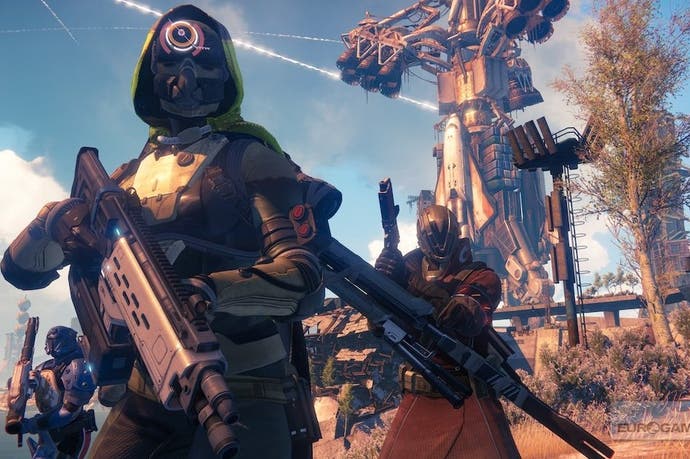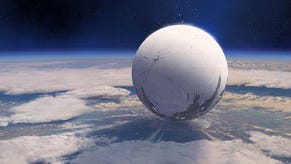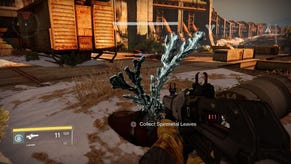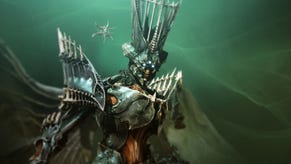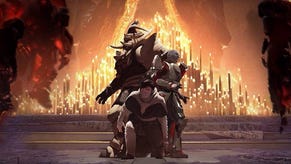Destiny thrills, but the big picture rings hollow
After a day's play, how does Bungie's shared world shooter fare?
This is an early impressions piece, culled from just over a day's play. To find out more about when to expect our review, please refer to our recent editor's blog.
Maybe it's something that crosses the mind of real astronauts when they make it beyond the earth's orbit, when the cacophony of launch thrusters is muted. Maybe it's a question they all ask themselves when presented with the awesome emptiness of space. Is this it? Is this all there really is to it all?
Destiny's Earth was so well trodden during the alpha and beta periods earlier this year that returning to in the final game feels something like coming home. You know the nooks and crevices, and know not to disturb whatever high-level monsters are dwelling in the basement, and for many the game will only really start when orbit is broken, your Guardian taking its first steps on the moon. And when you're there, it can all feel a little empty.
Destiny's launch hasn't lacked a sense of pageantry - and it's certainly not lacked for marketing millions, either - but the game itself is often lacking some spectacle of its own. When the beta launched, the spectacle was the game itself - a chance to finally play Activision's high-budget folly, to explore Bungie's first new universe since it forged the Halo rings almost 15 years ago.
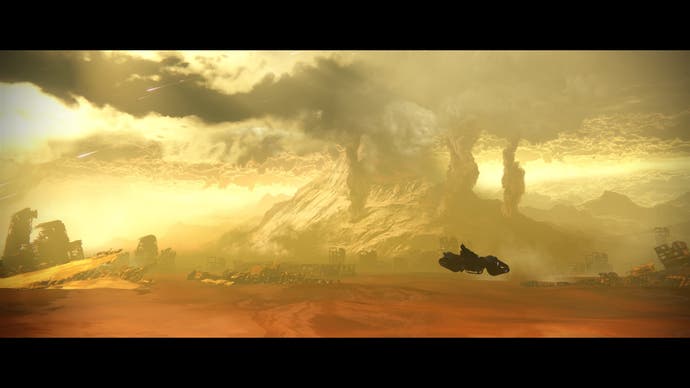
But, by nature of its massively multiplayer-ish design, Bungie's new universe doesn't contain the same stirring set-pieces as Halo; it doesn't underscore each rifle shot with the weight of apocalyptic circumstance. There's no Silent Cartographer, no Assault on the Control Room - no pre-defined moment that gives Destiny its magic. It's all about the smaller, shared moments, of course, but even then Destiny can sometimes be left wanting.
Some atypically poor world-building doesn't do Destiny any favours. By the time Bungie had departed its last grand series, the universe was a mess of lore - but it didn't start that way. Halo was introduced through a clean tale of a hero and his quest, dropped into the middle of warring species neatly drawn and distinguished. Destiny's a mess upon arrival; seven hours into its story missions, I have only the faintest clue what I'm fighting for, and very little idea what I'm fighting against.
Building a universe that can simultaneously be unravelled by millions of players is obviously a challenge, but Bungie hasn't helped itself with some misshapen exposition and flatlining voice actors whose performances are dead on arrival. Peter Dinklage's AI companion Ghost was derided in both the alpha and beta, and fares no better here - a problem exacerbated by mission design that too often asks you to defend him from waves of incoming enemies, when most players surely couldn't care less whether he was ripped to shreds or not.
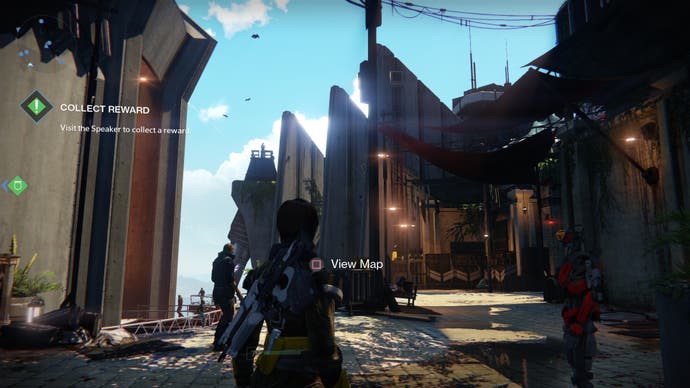
It's a shame such problems undermine a universe that is exemplary in its art design. The thawing Cosmodrome gives way to lunar levels where you can feel the moon dust sticking to the back of your throat, while Venus' jungles are tangibly damp with humidity. They're inter-cut with grand vistas pulled from the very best science fiction covers: Chris Foss-style illuminations of violent skies and wide open landscapes.
And while Destiny might not have the spectacle of Halo, it's got all of the scale and then some. Bungie's success all those years ago was primarily about bringing the dynamic tools of a shooter into a sandbox, and now that sandbox is bigger, those tools more sharp. Mechanically, Destiny is astounding, the compulsion loop of a loot-heavy game like Diablo fitting snugly around the meaty, elastic shooting of Bungie's back catalogue. There's a wonderful rhythm to playing Destiny that's easy to sink into - clear a strike, a story mission or patrol session then retreat, retool, repeat.
Levelling is smooth, and contrary to what Bungie suggested a few months ago feels in step with the progression rate in the beta, which is to say that it's pleasingly rapid. New abilities trickling through in-step with new gear drops that mean there's always a new toy to tinker with at the end of any run. What toys they are too! The four years since Halo: Reach have been enough for me to forget that no-one makes a pulse rifle fizzle like Bungie, and few others can make a shotgun boom so satisfyingly.

Their design hasn't been compromised by the overlaying of stats and attributes, either, and the integrity of Bungie's weapon set when transposed to such different systems is impressive. There have been tweaks since the beta that have helped - the hand cannon now has some lightning to back up its thunder, even if it's still a little too unwieldy to take to The Crucible's quick-paced multiplayer - and it's easier than ever to fall for single pieces. My own Copperhead Mk. 32, a shotgun that deals a mighty burst of solar damage and asks for nothing more than a tease of the trigger, won't be retired any time soon, and a Psi Tempus pulse rifle gave the empowering sensation of breaking the game for a mission or two.
If the enemies don't necessarily have a sense of purpose, they certainly pop with one. The small fizz of light that sears from a Dreg after a headshot, the tinny scream of a downed Harpy and icky thrill of hammering away at the glowing centre of a Hobgoblin's belly until they pop - the cannon fodder gives feedback as satisfying as the cannons in Destiny.
Who needs purpose or narrative drive after surviving a Strike, or when celebrating another victory in The Crucible? The social moments really string Destiny together, the magic coming in those random encounters when exploring the wilder world - little flashes of camaraderie between strangers that are invariably punctuated by dance-offs before players go their separate ways.
Yet there's still that slightly hollow ring to Destiny's world, which feels rich in art but sparse in life, even as other players are streamed in. Maybe some of that emptiness comes from the maxim that you're never more alone than when surrounded by others - but even early on it's clear that throwing everyone together is where Destiny's strengths, and its weaknesses, really lie.
